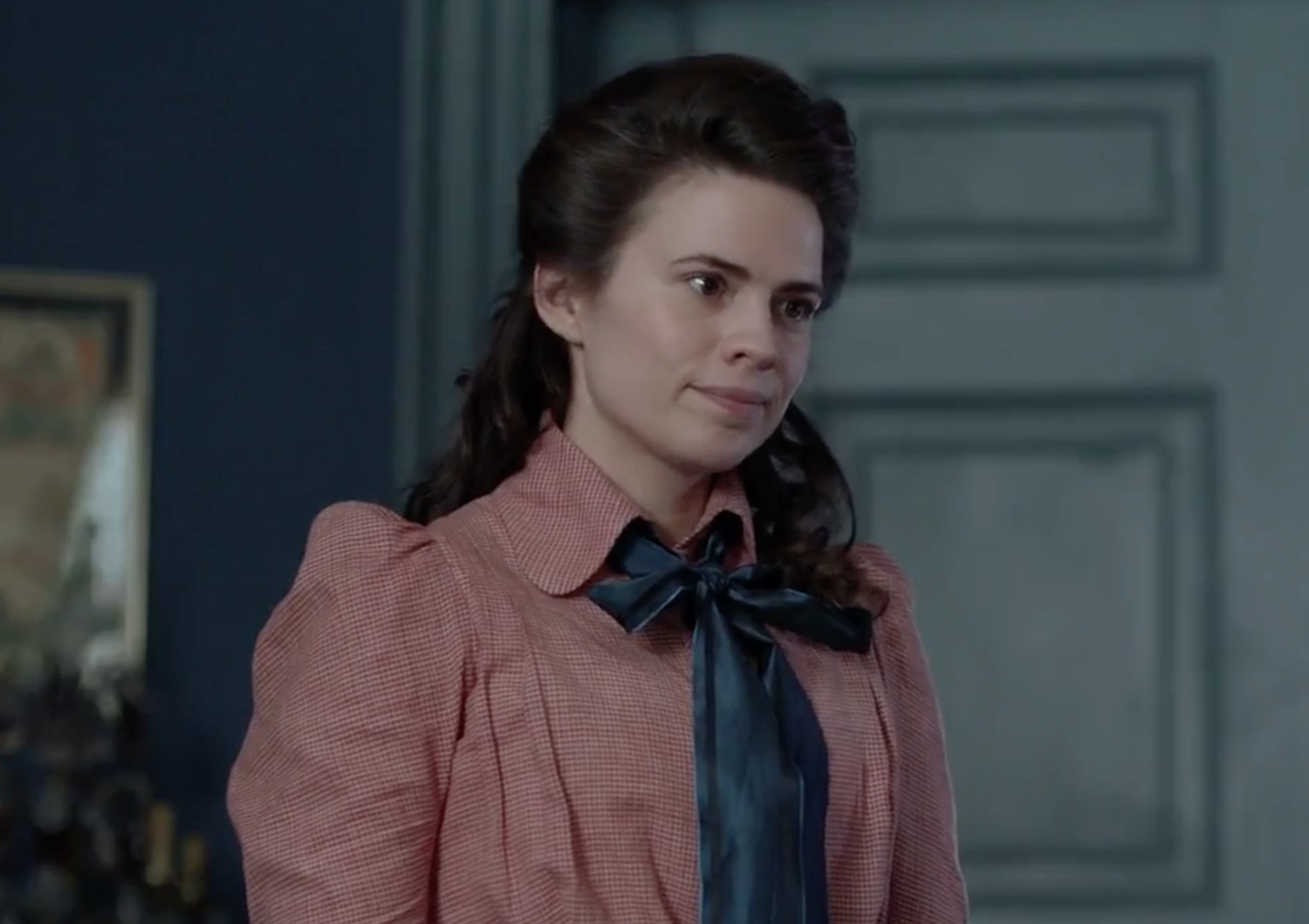
News
Garber Privately Tells Faculty That Harvard Must Rethink Messaging After GOP Victory

News
Cambridge Assistant City Manager to Lead Harvard’s Campus Planning

News
Despite Defunding Threats, Harvard President Praises Former Student Tapped by Trump to Lead NIH

News
Person Found Dead in Allston Apartment After Hours-Long Barricade

News
‘I Am Really Sorry’: Khurana Apologizes for International Student Winter Housing Denials
“Howards End” : A Glorious Take on a Classic Novel
Series Review

BBC’s latest period four part mini-series, “Howards End,” has just come to Starz—and it is marvelous. Based on E. M. Forster’s much-loved novel, which was then made into the iconic 1992 film for which Emma Thompson won an Oscar, “Howards End” was burdened with high expectations. Yet this new adaptation, written by Kenneth Lonergan of “Manchester by the Sea” and directed by Hettie MacDonald, refreshingly enlivens the story. It manages to stand on its own with its skilled cast and gorgeous cinematography, and does a faithful job of unpacking the novel’s complexities while never losing sight of the overarching themes and main characters.
“Howards End” focuses on the lives of three families in London in the 1910s: the Wilcoxes, the Schlegels, and the Basts. The Wilcoxes are an affluent family who reside both in London and in a country house called Howards End. Henry Wilcox (Matthew Macfadyen) is a wealthy magnate and a steadfast capitalist, but only nominally the family patriarch. In fact, the Wilcoxes’ world revolves largely around Mrs. Ruth Wilcox (Julia Ormond), an enigmatic force bringing balance to the selfish family.
In contrast with the conservative Wilcoxes, the Schlegels are bohemian and progressive. After her parents’ death, Margaret (Hayley Atwell) raises her younger siblings Helen (Philippa Coulthard) and Tibby (Alex Lawther) in a large house in London on their large inheritance. This family, modeled after the Bloomsbury group, represents a brewing world of change and idealism. They spend their time smoking, reading Kant and Dostoevsky, attending classical concerts, and gallivanting to lectures on reform.
The novel’s conflict is set in motion after the Schlegels encounter Leonard Bast (Joseph Quinn), a lower-middle class insurance clerk. It is his interest in art that convinces the Schlegel sisters to help him financially. In a casting choice that diverges from the film adaption, Leonard’s wife Jacky is played by Rosalind Eleazar, a black woman. Although her race is never directly addressed, this directorial choice has undertones which will be important as Jacky’s history is revealed.
The casting is the show’s greatest strength. All three Schlegels are delightfully portrayed by their respective actors. Atwell brilliantly plays Margaret, bringing to life her maternal strength and compassion. Her excellent chemistry with Macfadyen, who plays Henry, sets up the seeds for their relationship from the start. The sparks between them make their eventual relationship completely believable, something with which even the 1992 film struggles. Lawry’s Tibby is another great addition, stealing all the scenes he is in with his deadpan humor. He delivers his lines monotonously, but always with the slightest tinge of irony. Tibby has the unbearable habit of talking over his other siblings, but in the hands of Lawry this is comedic and almost loveable.
Coulthard gives a nuanced portrayal of Helen. She plays the character with a sensitivity that makes Helen much more palatable, since she—despite her good intentions—could have come across as obnoxiously naïve in the wrong hands. Her arc is centered on her realizations about money: Even though she deplores it and the people who worship it, the great irony is that her inheritance supports her artistic and counter-culture lifestyle. With the innocence that she imbues in her character, Coulthard makes these revelations feel less obvious and thus less frustrating.
However, Coulthard’s scenes with Quinn never feel quite right. Perhaps because the nature of the relationship between Helen and Leonard is so bizarre—Helen’s interest in him is more akin to a subject in an experiment than as a man. Quinn’s Leonard is overall quite powerful. As Leonard’s class and lack of finance continually thwart his desire for social mobility, he becomes more demoralized. Quinn shows this deterioration very carefully through hauntingly desperate looks and a constant trepidation in his movements.
The show’s setting is breathtaking, and the frequent panoramic shots put its beauty on display. As the show opens and ends with views of the idyllic world of Howards End there is a sense of closure despite the ever-changing nature of its residents. The shots of London are also varied, from the riches of the Wilcoxes’ flat to the grime of London’s poorer neighborhoods.
Altogether, these elements make the production a great success. Lonergan’s script keeps all the different threads of the show together. For a series like “Howards End,” structure is key especially as it can be difficult to follow the intricate plotlines. Perhaps its only fault lies in its pacing: It fails to show the passage of time, which can be quite confusing as there are rather large temporal leaps. Because of this, it feels as though very little time has passed between Ruth’s death and the marriage between Margaret and Henry. While such abrupt jumps in time might add a sense of urgency to drive the story forward, they feel unnecessary. Ultimately, “Howards End” doesn’t need this fast pace: It develops the story so well that it always keeps you guessing. With its stellar cast and depth, this production does just as well if not better then its Oscar-winning predecessor.
—Staff writer Aline G. Damas can be reached at aline.damas@thecrimson.com.
Want to keep up with breaking news? Subscribe to our email newsletter.
